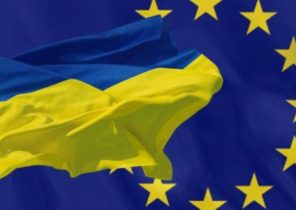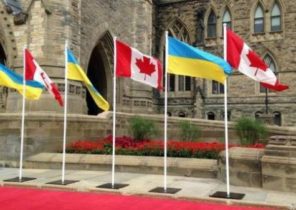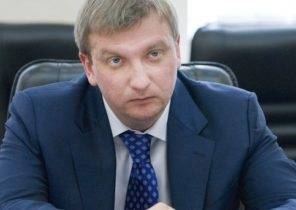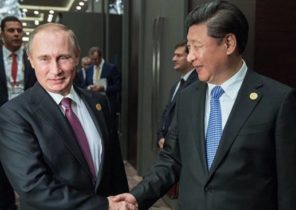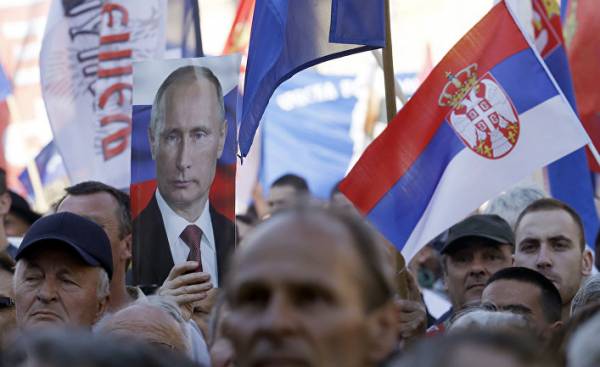
The aim of the scientific conference “South-East Europe and the Eurasian concept of cooperation,” which in the Russian house in Belgrade was organized by the Serbian NGO “Serbian code” and Russian non-governmental organization “Assembly of peoples of Russia”, was to clarify the Eurasian idea, which has evolved over a hundred years. In the last five or six years she began to come to life, as told to a philosopher Micha Jurkovic.
The Eurasian idea as a political concept originated in Russia in the late 19th century, and was clearly formulated in the 20 years of the twentieth century emigrated Russian intellectuals. After the collapse of the Soviet Union, this idea has experienced a revival, and its main proponents is Lev Gumilev and Alexander Dugin.
A practical embodiment of the Eurasian idea gets in the Eurasian economic Union, which includes Russia, Belarus, Kazakhstan, Armenia and Kyrgyzstan.
Today at a United Eurasia is actively developing economic cooperation, the customs Union and the single market, says, Jurkovich. At the conference many aspects of the Eurasian idea has been considered from the point of view of Serbia. First of all, discussed the aspect of security, and whether Serbia, with multiple sides surrounded by the Euro-Atlantic actors to establish cooperation with the countries of the Eurasian economic Union.
“The second aspect, of course, the economic, and of course he is real. The third civilization. It makes possible the linkages between modern Serbia and those in Serbia, who defends some civilizational, humanistic, and family values, with people in the space of the Eurasian Union from Russia through Kazakhstan and Belarus all the way to Kyrgyzstan and so on. That is, with countries that are also very anxious to withstand and to prevent the occurrence of so-called culture of death, which carries a Euro-Atlanticism”, explains Djurkovic.
Eurasian concept of cooperation implies the particular cultural and civilizational code that is different, according to political scientist Alexander Gajic, from the Euro-Atlantic. This code is peculiar to the peoples of Europe and Asia that have not undergone a modern transformation and a complete secularisation, and for which the elements of morality, faith and social solidarity, according to Gajić, it is extremely important.
“In fact, is a multinational code that recognizes cultural differences within the overall traditionalist of the whole, and on the other hand, has a social dimension based on the moral vertical, and brings economic benefits because the involved areas are compatible in economic terms,” said Gajic.
Form of Eurasian integration does not exclude existing systems sovereign state, so there is no question about the transfer of sovereignty to supranational institutions and democratically elected groups and associations. On the contrary, says Gajic, sovereign States delegate their representatives, and this method is closer to the system of functioning of international organizations.
There is no doubt that the cultural-historical meaning of Serbia, according to gajić, closer to the Eurasian concept. Political decisions unfolded Serbia to the European Union, but, on the other hand, it prefers, according to Gajić, development of economic cooperation with the countries of the Eurasian economic Union.
“The problem in the process of economic and political approach to the concept of Eurasian integration is that physically and geopolitically we are isolated from the actual Eurasian space cordon Sanitaire,” said Gajic.
Public opinion polls in Serbia indicate a positive attitude of citizens to the Eurasian integration. Support, expressed the EU, has been declining for several years and a long time does not exceed 50%, as told to George Vukadinovich, chief and responsible editor of the “New Serbian political thought”.
And although support for joining the EU a few percent higher than the percentage of those citizens who are against European integration, its opponents, according to Vukadinovich, form a cohesive group in contrast to those who support rapprochement with the EU.
A significant portion (almost half) of supporters of the accession of Serbia to the EU also stands for close cooperation with Russia — it is supported, as told Vukadinovich, more than 60% of the population. He noted that the last public opinion survey was conducted in the late last and early this year.
Vukadinovich also said that if respondents were asked to choose between Russia and the EU, the number of supporters of the European Union have dropped from 45-46% to 15-16%.
“When I have to choose one strategic geopolitical partner, the EU up 15% to 16%, USA — less than 1%, Russia 30%, China — from three to four percent. And about a third of respondents favoured some degree of neutrality, or rather non-aligned. These are real opinions. In fact, supporters of the EU is much less than firmly convinced supporters of economic-political Union with Russia. It’s shocking, but the way it is,” said Vukadinovich.
It seems that Serbian society is not split in two because of the choice between Russia and the EU. However, it is divided into those who favor deeper integration with Russia and those who are firmly convinced of the need for neutrality for our country.

